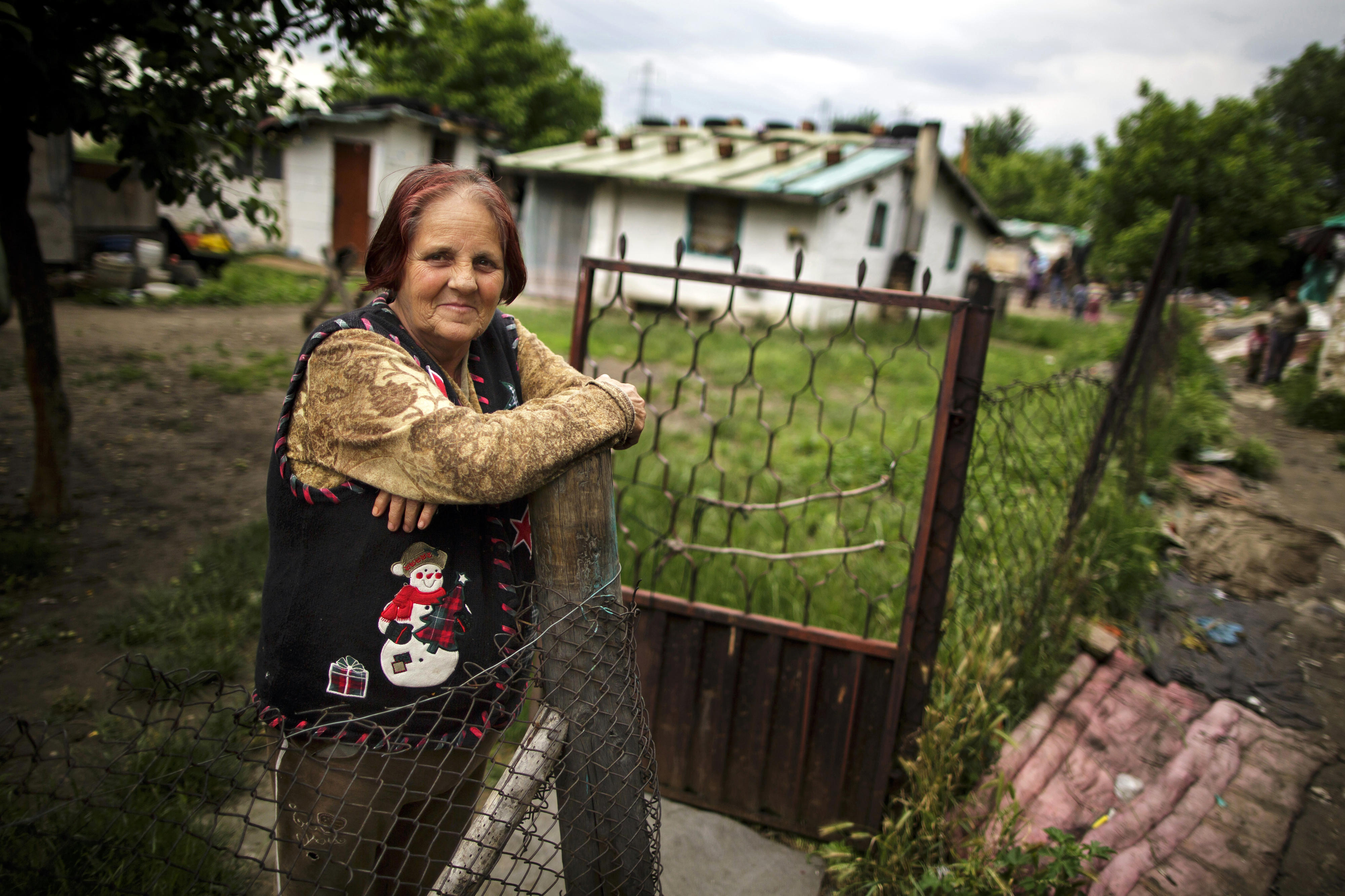Social situation Poor job prospects for young people
The official unemployment rate is about nine per cent. Serbia's economic recovery in the past few years has reduced the number of people leaving the country. Instead, they now look for jobs locally. Average net income is about 920 euros a month.
Shortcomings in public infrastructure are placing severe limitations on people's access to energy and water and on the disposal of waste and wastewater. This is also leading to a high level of pollution, overexploitation of natural resources, and high greenhouse gas emissions.
Inadequate protection of minorities
A woman stands at the fence of her property in a Roma settlement in Belgrade.
Poverty is most severe in rural areas and among socially deprived groups such as refugees and Roma communities. According to official statistics, about two per cent of Serbia's population are Roma. They are subject to significant discrimination in all areas of life. A large proportion of the Roma population live in informal settlements without any basic services. Only around 7 per cent of Roma children attend preschool (the national average is 61 per cent), and merely about 18 per cent of young people complete upper secondary school.
As at: 18/08/2025
